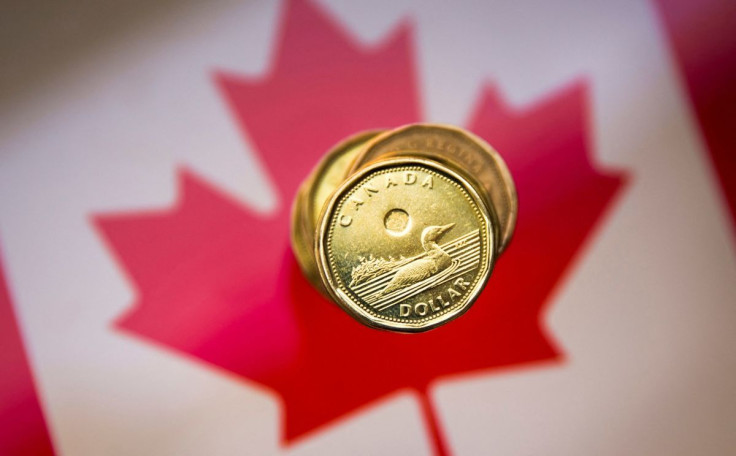Canadian Dollar Outlook Turns Less Cheerful As Recession Fears Mount - Reuters Poll

The Canadian dollar will gain less ground than previously thought over the coming year as the growing risk of a global economic slowdown bolsters demand for safe-haven currencies such as the U.S. dollar, a Reuters poll showed.
The median forecast in the poll was for Canada's currency to strengthen 1.6% to 1.28 per U.S. dollar, or 78.13 U.S. cents, in three months' time, compared to 1.26 in last month's forecast.
It was then expected to climb to 1.25 in a year's time, compared with the previous forecast of 1.23.
"Recession risks are building ... We're starting to see them more and more priced into markets," said Jay Zhao-Murray, market analyst at Monex Canada Inc.
"It's the broad risk-off that's going to drive USD and its a bit more of a USD story that's moving dollar-CAD."
Economists have slashed their forecasts for global economic growth in recent weeks as the war in Ukraine and COVID-19 lockdowns in China exacerbate supply shortfalls, making it more likely that central banks will hike interest rates aggressively to tackle soaring inflation.
Oil, one of Canada's major exports, has plunged about $25 in recent weeks, dropping back below $100 a barrel, and Canada's commodity-linked stock market has fallen 15% below its March record high.
Meanwhile, the U.S. dollar has climbed this week to 20-year highs against a basket of major currencies, including sharp gains against the euro.
"The negative tone that we've seen in risk assets - that's likely to persist until we see any major shift in central bank policy," Zhao-Murray said.
The Bank of Canada is set to raise its overnight rate by a hefty 75 basis points (bps) next week and by another 50 in September, front-loading a campaign to take monetary policy to where it will restrain the economy, a separate Reuters poll showed on Wednesday.
As central banks tighten, yield curves have been flattening. A closely watched part of the U.S. Treasury curve, between 2- and 10-year yields, has inverted. That's a phenomenon that has in the past preceded U.S. recessions.
Canada sends about 75% of its exports to the United States.
"Risks are tilted toward declines in the Canadian dollar if a U.S. recession happens sooner and oil prices continue to collapse," said Erik Nelson, a currency strategist, at Wells Fargo in New York.
(For other stories from the July Reuters foreign exchange poll:)
© Copyright Thomson Reuters 2024. All rights reserved.





















